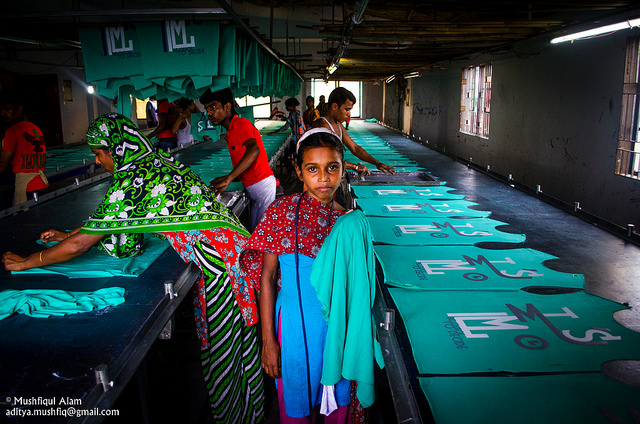This article is part of a series on degrowth.info discussing strategy in the degrowth movement. The introduction to the series and an ongoing list of contributions can be found here.
In a previous piece in this blog series, Joe Herbert and colleagues pointed out the “how to move towards a degrowth society” gap in degrowth discourse. As I have also come across this “how to get there” question in my own modest attempts to link direct democracy to degrowth (e.g. Zografos, 2015), I would like to contribute some thoughts and so try to expand the conversations started by those colleagues. In my case, I have been asking myself and my students whether direct democracy is the best political vehicle for advancing towards a radical socio-ecological transformation such as degrowth. Admittedly, I am probably less interested in “strategies” and more on the empirical question of how past radical socio-ecological transformations actually happened. But, I believe that answers to that question are closely linked to the project of charting out strategies of political action for degrowth transformations.
To my mind there are three challenges related to answering the “how” question: firstly, a theoretical challenge; secondly, one related to history and historical experience; and finally, a practical challenge. I’d like to focus on those challenges here.
Choosing where to learn from
The theoretical challenge relates to the question of how to choose what knowledge is relevant for degrowth from a considerable array of literature that directly or indirectly looks at radical transformations. The issue is a complex one, because different disciplines study different types or social domains of transformation. For example, social anthropology can tell us something about cultural transformations; some branches of institutionalism shed light on organisational transformation or the transformation of the economy; political economy scholars and some economic historians also look at transformations in the economy, albeit emphasising relations of production and using different lenses (e.g. Marxism) than those used by institutionalists; some branches of psychology and critical marketing studies can tell us about transformations in consumer behaviour; and the list could go on.
More interdisciplinary fields seem to hold greater promise, given that degrowth requires transformations in several spheres of human experience (e.g. material practices; social imaginary; etc.) and interaction (e.g. collective organisation; relating to nature; etc.). Environmental history for example, with its more integrated approach to the study of environmental change that looks both at how human affairs may force changes upon the environment and how nature itself acts as an agent in shaping human affairs (e.g. McNeill 2010, White 2011) can help us understand how multiple factors interact to produce significant and closely related political and ecological changes. Some attempts to draw from interdisciplinary fields are out there. In a recent paper with James Vandeventer and Claudio Cattaneo (2019), we borrow concepts and tools from the interdisciplinary field of transition studies to explore transformations towards degrowth at the intellectual level. Other colleagues have categorised key and crosscutting academic debates and approaches about social-ecological transformation that influence major policy reports, including degrowth as one such debate (Brand and Wissen 2017).
Still, I think that the challenge of choosing what is the relevant literature to look at from a broad range of disciplines and fields not only remains, but also points to another challenge which is how to choose what sort of transformations studied by those literatures can provide insights that could be relevant for strategising the type of radical socio-ecological transformation that degrowth requires. In other words, which past, already experienced transformations somehow exhibit “similarities” to the wholesale changes required by degrowth to the extent that we are able to meaningfully “draw lessons” from them?
Given the scale of transformation implied by degrowth, two possible contenders could be the Neolithic Revolution which marked a shift from hunter-gatherer societies and their socio-ecological relations towards sedentary social organisation and agriculture-based socio-ecological relations; and, the emergence of capitalism, which produced radical socio-ecological transformations at a global level, notably both at its core and peripheries. Studying those transformations could help us learn more about the sort of interactions between material, institutional, socio-cultural, and political economy spheres that produce radical change in socio-ecological relations, as well as the nature, interaction, potential and limitations of strategies pursued by influential agents of those changes. Again, more interdisciplinary analyses such as those offered by world-ecology (for capitalism) (Moore, 2003) and James C. Scott’s (2017) recent book on the Neolithic Revolution seem more useful. But if we were to stick with those examples, the challenge would be to see how we could learn from phenomena that have transformed socio-ecological relations in directions contrary to those pursued by degrowth – in terms of their increasing of social metabolism – and societies materially different than most of today’s societies.
Perhaps the next step here should be to develop specific criteria for choosing which literatures and past transformations could be relevant for helping us to reflect on degrowth transformational strategies.
What triggers transformation?
This relates to the second challenge, which is of a historical nature. As suggested by the Neolithic Revolution and emergence of capitalism examples, a common way to search for guidance on political strategies of transformation is by looking at past experience. When trying to explain political outcomes, such as for example the success of a revolution, or the change of political regime, historians tend to distinguish between conditional and contingent factors. Conditional factors involve long-term changes and developments, such as changes in social structure, political practice and thinking, or material conditions and relations (Anderson 2007). For example, according to historian Linda Colley (2018), when we look at what has proved genuinely significant in the past, we realise that game-changing transformations have happened slowly. But Colley also reminds us that if we look at what has triggered transformation – i.e. contingent factors – in the past, we see that disease, climate alterations, leaps in technology, economic crises, and major shifts in belief and ideology, together with war – perhaps the more paradoxical and recurring trigger of all according to Colley – have all sparked off dramatic change. I think that it is far from obvious what such insights imply for the “how” question in degrowth, and specifically for the sort of political strategies required to move towards degrowth transformations.
Moreover, and when it comes to contingency, historians also remind us that accidents as well as a set of factors one could term as “freewill gone wrong” – namely, unintended consequences, miscalculations, misjudgements and incompetence – have proved crucial triggers of transformation and unprecedented political change. This point serves as a reminder that too much emphasis on intentionality, rational action and planned transformation might be off the point. Instead, degrowthers may be better off considering strategies of transformation that either leave space for exploiting such contingencies, or are even built upon the assumption of different political contingencies. They should perhaps also seek to stimulate broader transformational action via emotion, socialisation, and embodied practice, as feminist scholars remind us (Nelson, 2013). One challenge here is to avoid descending into opportunistic political action and populism in our effort to convince about the value of our project, as recent incorporations of emotions in politics have done.
Taking stock
Finally, I would like to conclude with what I see as a practical challenge related to the “how” question: how are we to take stock of all that information? Surely, and as pointed out by Herbert and colleagues, some sort of systematisation of such knowledge and of its relevance for degrowth is desirable. But how are we to make use of all that knowledge without entering into the temptation to try to produce blueprints for degrowth transformations? One way to deal with that challenge is to use that knowledge to generate potential pathways for degrowth transformations, which could then be presented in instances where activists, scholars, artists, practitioners, and others interested in degrowth could collectively reflect and deliberate about the relevance of such pathways for charting strategy. An obvious place to do so would be special sessions in degrowth international conferences, whose regularity provides an opportunity for continually updating knowledge around the issue of strategy.
But above all, when seeking to take stock of past knowledge it is important to keep a critical mind on attempts to learn from “the past”. In her telling of the story of the 1871 Paris Commune, Kristin Ross (2015) asserts that the past does not give lessons; instead, Ross believes that there are moments when a particular past event enters intensely into what she calls “the figurability of the present”. Assuming that the present can be brought to some form or shape, i.e. that it is “figurable”, Ross contends that learning about the Commune can help inspire us to consider the capacity (e.g. possibilities, alternatives) of the present to be shaped in certain, desirable ways. I think that this can be a truly creative and powerful way of learning from past and present transformations for degrowth.
References
Anderson, A., 1995. The civil wars 1640-9. Hodder & Stoughton.
Brand, U. and Wissen, M., 2016. Social‐Ecological Transformation. International Encyclopedia of Geography: People, the Earth, Environment and Technology: People, the Earth, Environment and Technology, pp.1-9.
Colley, L. 2018. Can History Help? London Review of Books Vol. 40 No. 6, pp.12-16.
McNeill, J.R., 2010. Mosquito empires: ecology and war in the Greater Caribbean, 1620-1914. Cambridge University Press.
Scott, J.C., 2017. Against the grain: a deep history of the earliest states. Yale University Press.
Ross, K., 2015. Communal luxury: The political imaginary of the Paris Commune. Verso Books.
Vandeventer, J.S., Cattaneo, C. and Zografos, C., 2019. A Degrowth Transition: Pathways for the Degrowth Niche to Replace the Capitalist-Growth Regime. Ecological Economics, 156, pp.272-286.
White, S., 2011. The climate of rebellion in the early modern Ottoman Empire. Cambridge University Press.
Zografos, C. 2015. Démocratie directe [Direct Democracy]. In: D’Alisa, G. Demaria, F., Kallis, G. Décroissance. Vocabulaire pour une nouvelle ère [Degrowth. Vocabulary for a new era]. Neuvy-en-Champagne: Éditions le passager clandestine, pp.187-194.


